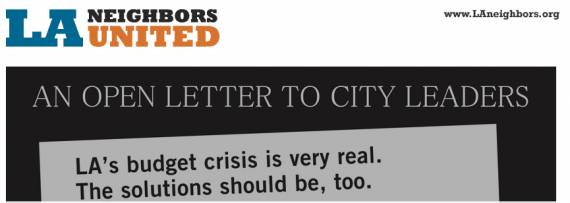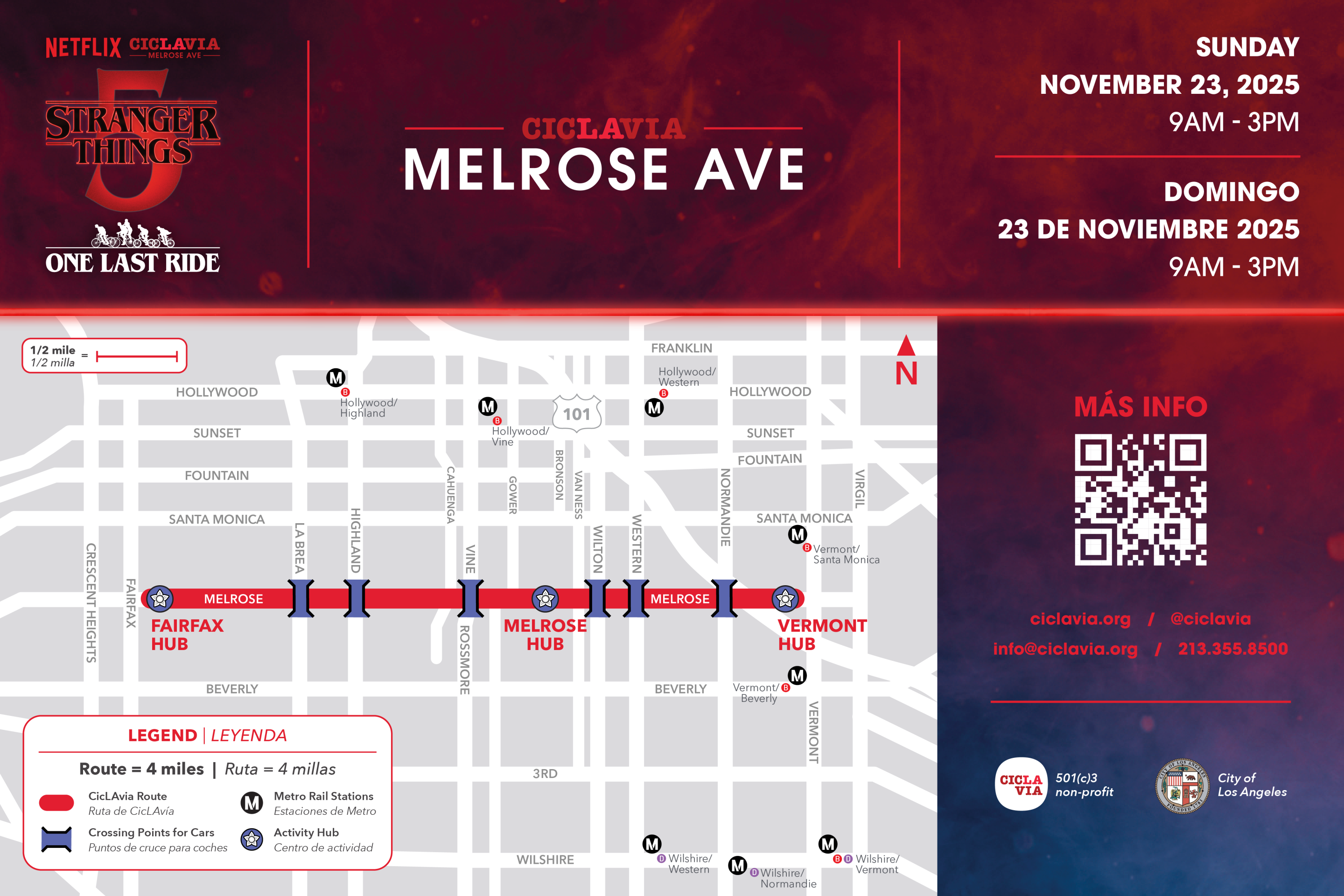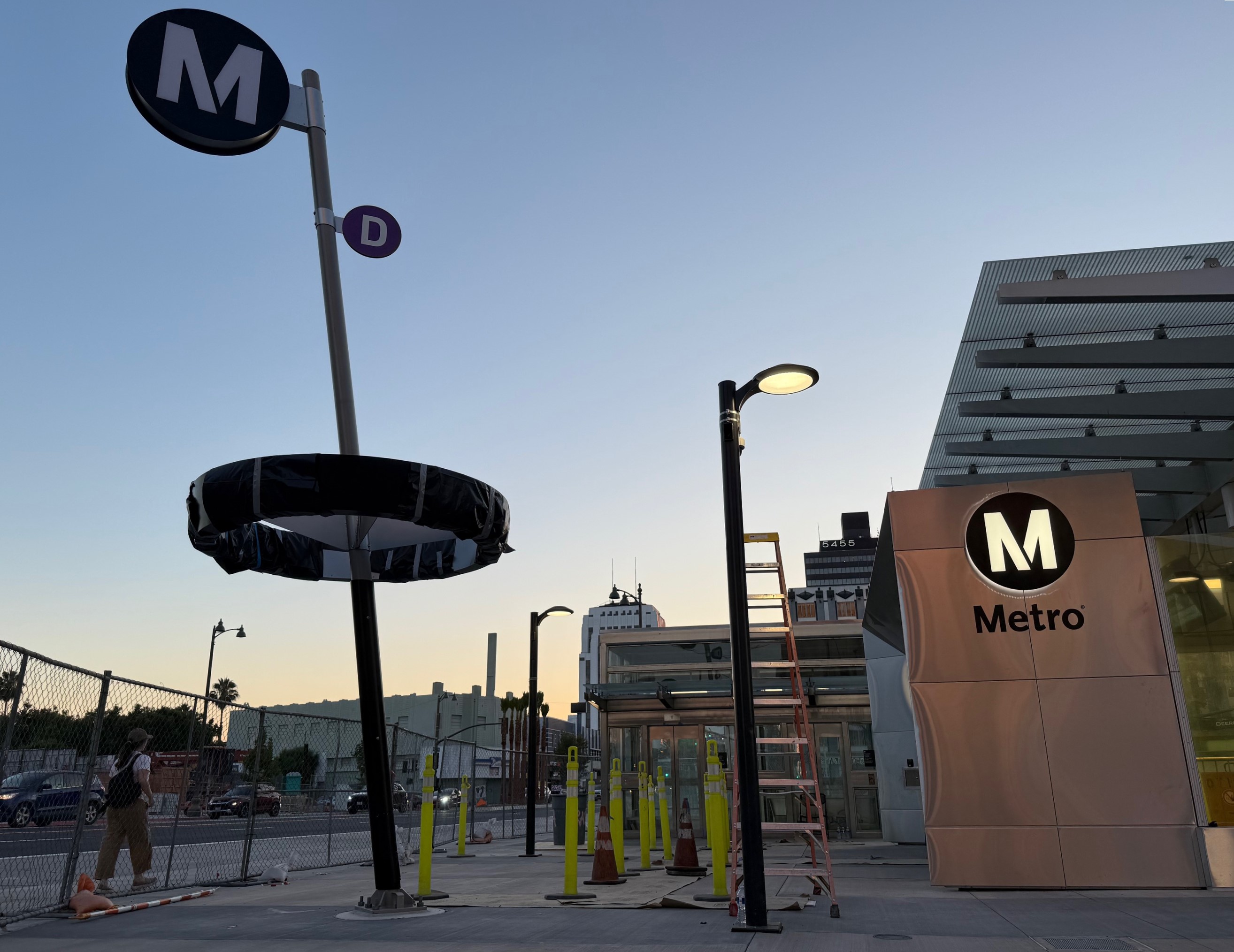
As a city, is Los Angeles ready to create communities that best integrate with the new transit system promised by Measure R and the 30/10 proposal?
According to a group of community activists calling themselves "LA Neighbors United" (LANU), the answer is "no." The coalition of neighborhood activists are incensed by changes to the city's planning code that they claim will make it easier for projects to gain approval even if they do not meet the requirements of the local, city-approved, neighborhood plan. As a result, LANU has written to the Federal Transit Administration urging them to halt funding of L.A.'s transit expansion projects until the city has the planning codes in place to support all of the planned transit expansion projects.
The changes to the code were passed on consent at Wednesday's meeting of the City Council. You can read the ordinance and committee reports here
In short, their point is that if we rush transit expansion before the proper planning codes and zones are in place; we'll end up with sprawl development patterns around transit stations which would undermine transit ridership and the promise of a new Los Angeles. And if the city is actually undermining those plans, then it shouldn't be rewarded with an accelerated transit expansion plan. Or, put less succinctly, from their letter to the FTA:
The proposed law makes no effort to target growth, including population and housing development, around transit corridors generally or Measure R funded transportation projects specifically. Rather, the new system would perpetuate the City's historically Wild West approach to anything-goes-anywhere planning, regardless of proximity to transit, and in clear violation of the California Environmental Quality Act.
Such an approach, which effectively decouples land use planning from transportation planning in the City of Los Angeles, is reckless, conflicting and incoherent. It jeopardizes the ability of Measure R projects to perform as anticipated. It also undermines Southern California's ability to meet the greenhouse gas emissions targets to be set under a new state law.
Proponents, most of whom happen to be in the construction and real estate industry, claim the new codes will simplify the project. However, by "simplifying" they mean that it would enable the city change zoning within Community Plan areas without a public outreach in the form of a formal Community Plan update. Even if LANU and its allies are correct, there's nothing in the ordinance that would prevent the city from rezoning to encourage dense, walkable, transit oriented developments. But then we run in to the issue that Metro is still working on standards for their T.O.D.'s, and some of the constructed projects have already been found lacking when it comes to integrating with the existing community. Former City Planner Dick Platkin explains what LANU wants at Ron Kaye L.A.:
What Los Angeles needs is real implementation of its existing and future adopted city plans, not misleading ordinances which claim to implement the General Plan and Community Plans, but which, at best, do nothing of the sort. Furthermore, at worst, they may actually sabotage the very plans they claim they are implementing.
Another article outlining objections to the changes can be read at today's City Watch.
While its hard to argue with their argument that the city could be doing more, much more, to promote transit oriented communities, but is it worth risking 30/10 if the City won't bend?
Meanwhile, transit expansion advocates are continuing to hope that the new Republican controlled House of Representatives is supportive of the Infrastructure Bank and other plans that would make 30/10 a reality. But with another group joining the Bus Rider's Union in formal opposition to the project, it appears that the backlash against 30/10 may be growing.






